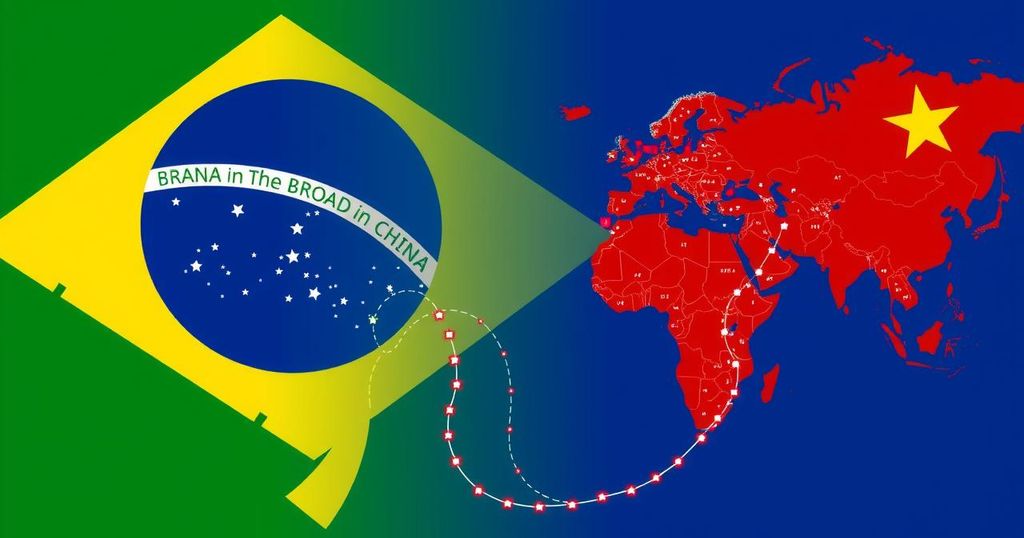Brazil announced it will not join China’s Belt and Road Initiative but is open to leveraging its framework for synergies with domestic infrastructure projects, reflecting internal divisions and a strategic approach to international relations.
Brazil has officially announced that it will not be joining China’s Belt and Road Initiative (BRI), a comprehensive and substantial infrastructure project initiated by Beijing a decade ago. This declaration was made by Celso Amorim, a special advisor to the Brazilian president for international affairs, during his time in Beijing, although he expressed that Brazil remains open to exploring the initiative’s framework to identify potential synergies with its domestic infrastructure projects. Some analysts suggest that Brazil’s decision indicates a lack of consensus within its government regarding the BRI; however, they believe that it will not hinder Brazil’s relationship with China, which stands as its largest trading partner. The Brazilian administration is currently seeking a strategic approach that aligns with the country’s specific investment needs and infrastructure goals. Prior to this announcement, there had been speculation that Brazil might formally join the BRI during the forthcoming visit of President Xi Jinping to the Latin American nation, spurred by the earlier visit of Brazilian officials, including Amorim, Chief of Staff Rui Costa, and Central Bank head Gabriel Galípolo to China to set the stage for a stronger bilateral dialogue.
The Belt and Road Initiative, consistently posited as a pivotal global development strategy by China, aims to bolster trade routes and facilitate investment in infrastructure across various countries. While Brazil has been approached to align with this initiative, the country is navigating its foreign relations carefully, weighing the benefits of engagement with China against its domestic priorities and potential political considerations within its administration. The BRI encompasses substantial financial contributions, yet Brazil must assess the strategic implications of such an association within the context of its broader international relationships and economic objectives.
In summary, Brazil has chosen to abstain from formally joining the Belt and Road Initiative while remaining open to collaboration under its framework. This nuanced stance reflects internal divisions regarding the initiative within the Brazilian government, yet underscores Brazil’s prioritization of maintaining a strong relationship with China, its foremost trading partner. The country’s leaders are committed to pursuing infrastructure projects which resonate with Brazil’s national interests while taking a cautious approach towards international alliances in large-scale initiatives.
Original Source: www.scmp.com






